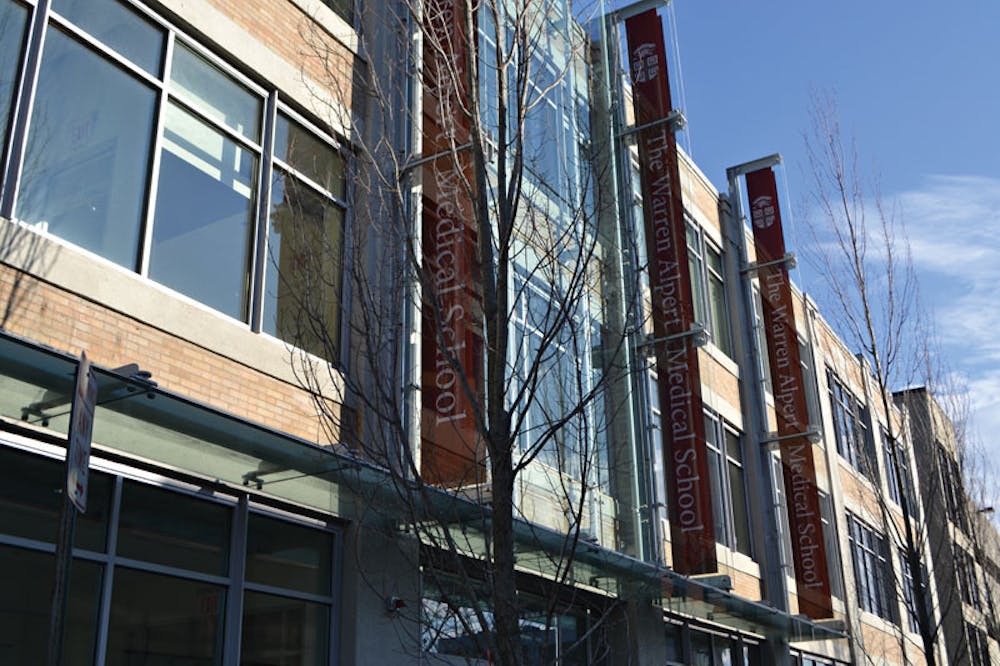The Program in Liberal Medical Education will introduce two new interdisciplinary courses for undergraduates in fall 2014, said Associate Dean of Medicine Julianne Ip ’75 MD’78. The courses — which aim to approach medical education from an integrative, case-based angle — could put the University at the forefront of innovations in pre-medical education, administrators said.
The courses will likely be designed primarily for PLME students, who would take them consecutively as first-years or sophomores, she said.
The new courses will not be required but can serve as alternatives to the traditional pre-med requirements in the natural sciences and math for PLME students, Ip said.
Ip said the two new courses will be open to all students. But she said she does not expect many standard pre-med students to enroll, since the courses would not fulfill their pre-med requirements.
Ip said the alternative course track will entail a series of three courses: the two currently being developed and the PLME senior seminar, which she taught for the first time last fall. The senior seminar will be highly encouraged but not required, Ip said.
The PLME senior seminar is a case-based, interdisciplinary course that mostly requires knowledge of biology but also some physics and chemistry, Ip said. The two introductory courses being developed will provide the foundational knowledge for the seminar, she said.
The courses will integrate biology, chemistry, physics and math by blending the aspects of those disciplines applicable to medicine, Ip said.
Should they opt for the interdisciplinary courses, PLME students would also need to take three biology courses selected from a specific list of offerings, Ip said.
Ip and Associate Dean for Medical Education Philip Gruppuso both said the new interdisciplinary courses were created to establish a curriculum based on pre-med competencies, citing concerns raised about national medical education in a 2009 joint report from the Howard Hughes Medical Institute and Association of American Medical Colleges.
The report’s authors wrote, “Emphasis should be on defined areas of knowledge, scientific concepts and skills rather than on specific courses or disciplines.”
“A competency-based approach should give both learners and educators more flexibility in the pre-med curriculum to allow undergraduate institutions to develop more interdisciplinary and integrative courses that maintain scientific rigor, while providing a broad and strong liberal arts education,” the authors wrote.
Both Ip and Gruppuso said pre-med education has not changed on a national scale for years, and they are excited about the University’s chance to lead the way.
This work on the new courses “takes advantage of the PLME as an avenue for innovating in pre-medical education,” Gruppuso said, adding that “this has the potential to put Brown ahead of the curve in developing an integrated pre-medical science curriculum.”
“We’re trying to be at the cutting edge,” Ip said.
There should be differences between introductory courses in the natural sciences and math for pre-med students and those for others, Gruppuso said.
Gruppuso said one anticipated benefit of the new courses, which will have greater relevance to human health and disease, is a higher level of student engagement.
Ip said that was the case in the PLME senior seminar this past fall. Students “were so engaged” even though the course met at 8:30 a.m., she said.
“I was shocked. I was just thrilled,” she added.
Sanchita Singal ’13, PLME Senate co-president, said the PLME Senate has not yet discussed the courses being developed but said student feedback about the PLME senior seminar was very positive.
Because PLME students will need to complete their concentration requirements regardless of whether they enroll in the interdisciplinary courses, Ip and Gruppuso agreed that humanities and social science concentrators would be more likely to take the integrated courses. Natural science concentrators will need to take many traditional pre-med courses in order to complete their concentrations, anyway.
“We think that this will be taken by a minority of PLME students,” Gruppuso said.
The three interdisciplinary courses will place a heavy emphasis on multiple-choice questions, Ip said. Because physicians are assessed by multiple-choice questions throughout their careers, Ip described learning how to take a multiple-choice exam as “vital.”
PLME students in particular need to practice multiple-choice questions since they do not have to take the Medical College Admission Test, and there is a long gap without a “high-stakes” multiple-choice test between the SAT and the licensure exam, Ip said.
The Alpert Medical School has not yet discussed the possibility of altering its own pre-med admission criteria, Gruppuso said. Any change in pre-med requirements would be determined by the admission committee and the dean, he said.
The recommendation for a revamped PLME curriculum in January’s interim strategic planning report by the Committee for Educational Innovation was an endorsement of the courses being developed, Ip said. Provost Mark Schlissel P’15 and Dean of the College Katherine Bergeron embraced these integrated courses, she added.
Solomon Swartz ’14, a PLME student, said the change eliminates a layer of stress for students already admitted to the Med School and opens the door to concentrating in disciplines like computer science or political science, which have requirements that do not overlap with pre-med requirements.
Meghal Shah ’14, another PLME student, said she personally would choose the traditional pre-med requirements, which she said are valuable in providing a broad spectrum of educational experience.
“Doctors should be able to work through any type of academic problem,” she said.

ADVERTISEMENT




